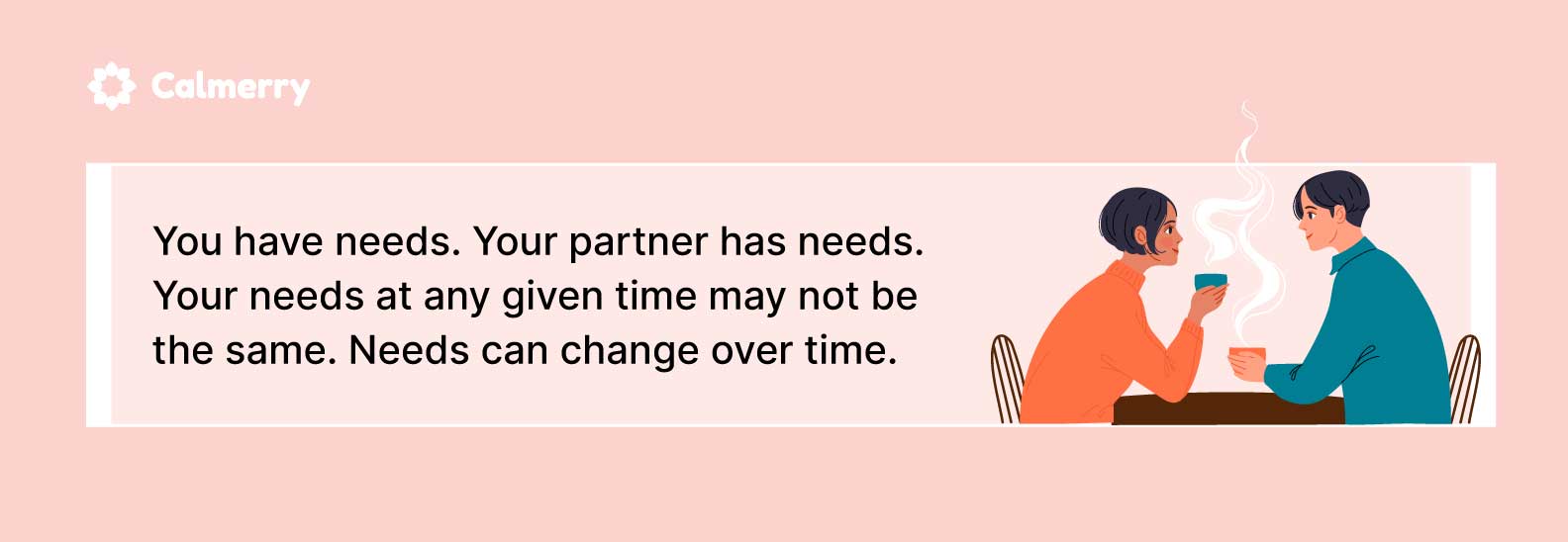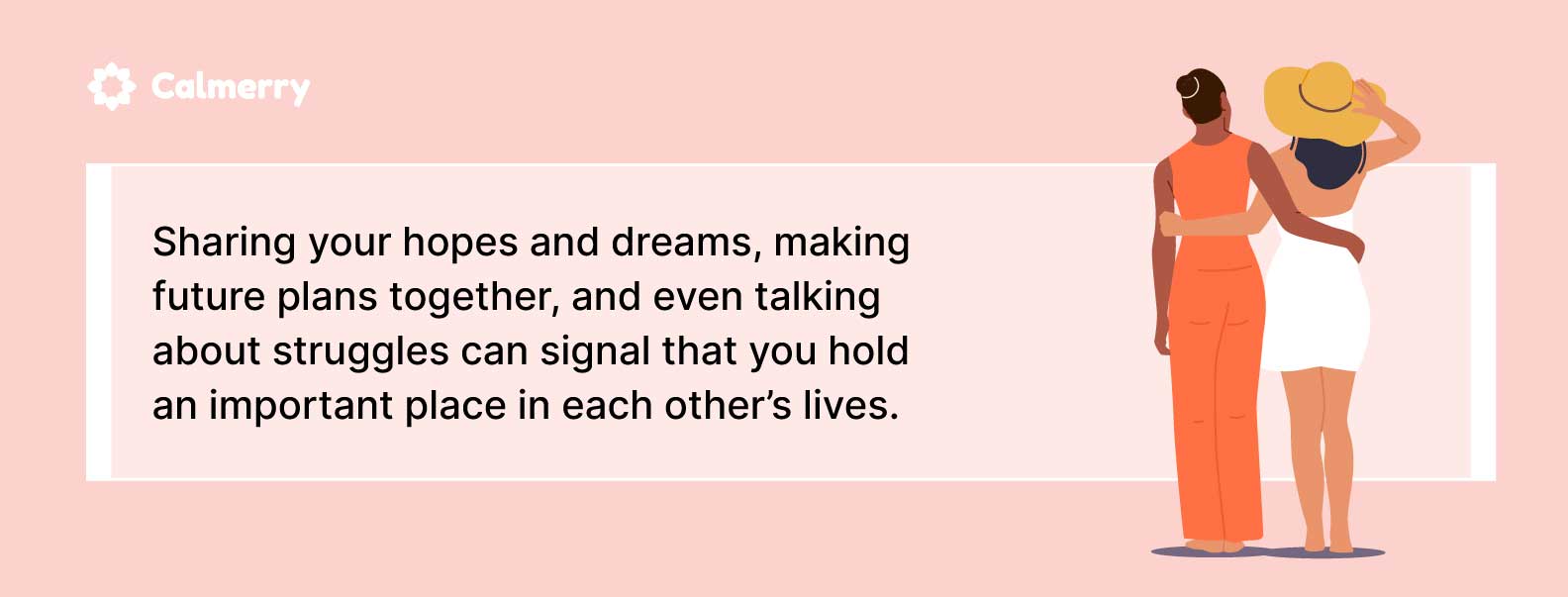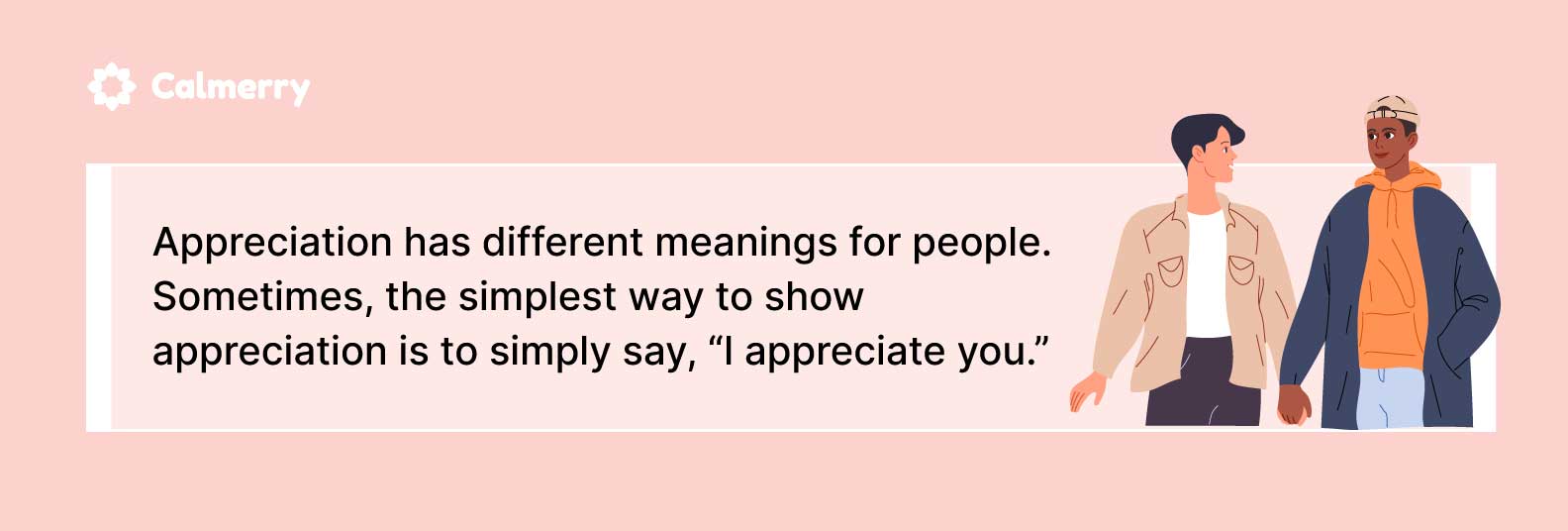12 Emotional Needs in Relationships: Yours, Mine, and Ours

Needs…we all have them. Getting our needs met is a basic driver of motivation and the basis of everything we do. In fact, getting our needs met is vital for physical and mental health, and in some cases, our very survival.
Physical needs are pretty easy to recognize – food, water, clothing, shelter, safety, and other needs that keep us alive.
Emotional needs are higher-level needs that are vital to our sense of well-being and connectedness. These needs help us to feel secure, loved and cared for, valued, and accepted. Emotional needs are sometimes harder to pinpoint but carry tremendous impact – the need for community/belonging, companionship, love and affection, acceptance, compassion, and comfort, just to name a few. They’re the kind of needs that bring meaning to life.
So, what happens when you find yourself in a relationship? You have needs. Your partner has needs. Your needs at any given time may not be the same. Needs can change over time.
Meeting emotional needs in a relationship is all about balance. While we all have lots of emotional needs, there are some that are particularly relevant to romantic relationships.
Emotional needs – A closer look
The fulfillment of emotional needs is derived largely from the relationships you have with others. Our family meets our early emotional needs. As we move into adulthood, our adult relationships take over that role. You might think that meeting emotional needs in your relationship is easy. You love each other, right?
In fact, we often think that when we get into a romantic relationship, our partner will fulfill all of our emotional needs. Expecting someone else to be responsible for all of your needs is a big ask. Of course, mutual support is part of healthy relationships but ultimately, the responsibility for emotional fulfillment is yours. Needs need nurturing.
Couples with strong emotional bonds tend to experience more satisfaction and fulfillment. The key to handling emotional needs in a marriage or any romantic relationship is understanding your needs and those of your partner and finding ways to support each other in healthy ways.

Taking a closer look, there are certain specific needs that are particularly important to couples and often cited as problematic when they are not met:
Trust
Can I believe in you? Trust is often referred to as the foundation of a healthy relationship. Without trust, a relationship will struggle, plagued by feelings of insecurity and betrayal. Part of building trust is honesty. For your partner to trust you, they need to know that you are honest and trustworthy.
Trust is the quality of feeling safe with your partner physically and emotionally. Your interactions are not abusive or disrespectful. You feel confident that your partner will not hurt you or violate you.
Relationship expert John Gottman refers to trust as one of the “pillars” of what he calls a Sound Relationship House. Trust is one of those requisite needs upon which other needs rely. A strong relationship house is built on trust.
Security
Am I safe with you? Closely aligned with trust is security. Feeling secure in a relationship is vital to its success. When you love someone, you want to feel wanted, safe and supported. After all, if you feel insecure or fearful, building a happy, healthy partnership is difficult.
Security can mean different things to different people. You and your partner may even have different ideas about what just makes you feel secure. In general, security in relationships is about safety and support:
- Feeling safe to set boundaries
- Respecting each other’s boundaries and need for space
- You feel both physical and emotionally safe
- You feel able to express your feelings and needs
- You respect each other’s choices
When you feel secure, you are more likely to allow yourself to be open and engaged. You are able to let your partner be who they authentically are too.
Acceptance
Do you love me for who I am? Knowing that your partner accepts you just the way you are, for who you are, and feeling accepted, is at the heart of acceptance. Sharing your hopes and dreams, making future plans together, and even talking about struggles can signal that you hold an important place in each other’s lives.
Feeling accepted also brings a sense of belonging, that you’re a part of your partner’s larger world. Meeting each other’s family and friends, attending important events, and other activities that bring you into each other’s worlds signal that there is a place for you.

Affection
Show me you love me. When you think of affection, what first comes to mind is physical touch, like handholding, kissing, hugging, and maybe even sex. Affection can also include those small, sweet gestures and loving words.
While you might think that sex and physical touch are most important, don’t underestimate those sweet words and gestures. Non-sexual affection has been linked to relationship satisfaction which is a well-known predictor of relationship success and longevity.
Affection is something that people have a deep need for. It helps you bond with your partner, bringing you closer. Not surprisingly, affection, or lack thereof, is often cited as a source of tension and a reason for couples to seek counseling.
Validation
Do you feel me? Feeling like you’re on the same page is something that most couples want and need. You want your partner to at least to be able to respect your point of view, even when you might not agree.
Validation means that your partner views your thoughts and feelings as valuable and understandable. It simply means that they can say, “I understand how you might feel (or think) that way.” Validation means you’ve been heard. When someone feels invalidated, it can lead to feelings of resentment that, over time, erode your emotional connection and the stability of your relationship.
Autonomy
I can decide for myself. Personal autonomy is one of the most important needs in a relationship. Having autonomy in your relationship means that you have the freedom to make decisions for yourself. In relationships where there is no autonomy, one partner can dominate and control the other. The dynamic can become unhealthy and abusive.
As a couple, you will have a lot of decisions to make as you go along. When you and your partner are free to make your own decisions, you are creating a healthy foundation to build on.

Empathy
Walk a mile in my shoes. Empathy is the ability to understand someone’s experience from their perspective instead of your own. It’s akin to the old saying, “Put yourself in their shoes.” Sometimes, it’s not about you.
When someone extends empathy, it sends a message that they are trying to understand your experience and what it might be like for you. When you show empathy towards someone, they feel supported, cared for, and understood. Being able to show empathy towards your partner shows compassion and helps you to understand each other on a deeper level.
Prioritization
Do you make time for me? Prioritization in a relationship means that you make time for each other. Of course, you can’t be together 24/7 nor should you be. Relationships take work. Prioritizing your relationship requires a commitment of not just time but also emotional energy. Couples who prioritize their relationship not only do things together, they have a plan and goals for their future.
What you do with the time you spend together matters. Are you present? Are you engaging with your partner, or is your focus elsewhere? If you don’t feel like you’re a priority for your partner, it can impact other areas, like feeling secure and appreciated. Over time, it can erode your emotional intimacy and bond.
Connection
Do things with me. Connection refers to how you and your partner come together in ways that are meaningful and fulfilling. Connections are forged by doing things together, sharing experiences, setting goals, and working through issues. Couples who feel connected tend to report higher levels of relationship satisfaction.
But can you be too connected? You can. The fact is, just as too little connection is detrimental, too much connection can be just as damaging. You want to be connected in healthy ways that allow you to balance time together and time apart.

Space
I need my space. As important as the connection is, sometimes you just need your space. It’s not just ok for you to spend time apart doing your own thing, it’s necessary for a healthy relationship and for your own mental health.
Of course, you want to spend every minute together, especially when your love is new. Over time, though, too much closeness can suffocate your relationship. Too much closeness can create unhealthy codependency and make it difficult to maintain your own identity.
Giving each other space also includes privacy. This is a hard one for a lot of couples and goes back to trust and security. It’s ok to do things separately with friends and family without worrying about what your partner is doing. Healthy relationships have a balance of both connection and space.
Appreciation
Show me you value me. We all want to be appreciated. Of course, you do it for the one you love because you love them. It is also normal to hope that they will appreciate what you do. Showing you appreciate each other is a powerful part of a healthy relationship. In fact, couples who actively express appreciation for each other are less likely to break up and generally report higher levels of commitment to the relationship.
You might be thinking that your partner “knows” you appreciate them. Are you sure? Appreciation has different meanings for people. Sometimes, the simplest way to show appreciation is to say, “I appreciate you”

Communication
Can you hear me? Of all the needs couples have, communication is probably the hardest. Communication is the heart of interaction and how we convey messages and meaning to others. In fact, aside from infidelity, communication and communication-based issues like affection/intimacy and “lack of love”, are the number one issue that couples cite when seeking counseling.
Communication is more than just “talking.” Communication conveys emotions and meaning. Communication is sharing, listening, responding, and understanding. What does that look like?
- Asking for what you need. Not sharing but expecting your partner to just “know” isn’t fair and sets you both up for disappointment.
- Listening for meaning when your partner speaks to you. What are they trying to say?
- Sometimes, it seems easier just to avoid the hard stuff. Avoiding the hard, deeper conversations, or stonewalling, leaves your partner wondering just what is going on. Honesty matters, and when you avoid conversations, insecurities can take over, leading to misunderstandings and mistrust.
Breakdowns in communication leave couples struggling. If you can’t talk about what you need, how can you change things? Over time, that lack of communication can result in a relationship in peril.
Getting what you need
Knowing how to balance emotional needs in relationships isn’t always easy, and even the most committed couples struggle sometimes. When needs go unmet, worry and tension can result.
The good news is that relationships can be repaired and strengthened. Couples counseling can help you and your partner take a closer look at what’s happening and find ways to heal and grow your relationship. A trained couples therapist can help you explore those pain points and help you find your way back to a healthy balance.
Try Calmerry therapy
online therapy
live video session



